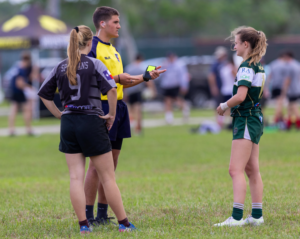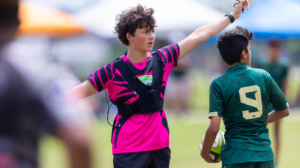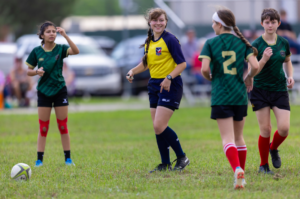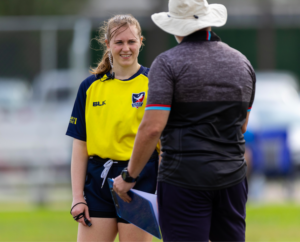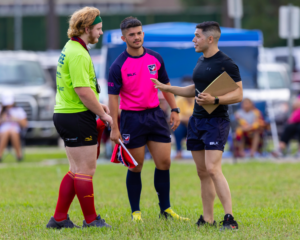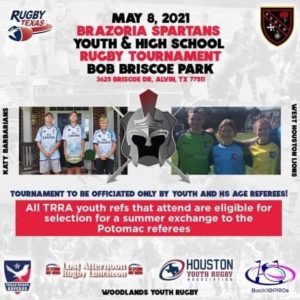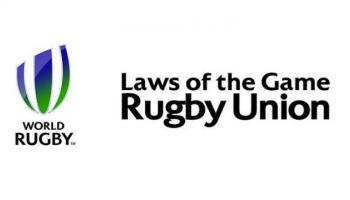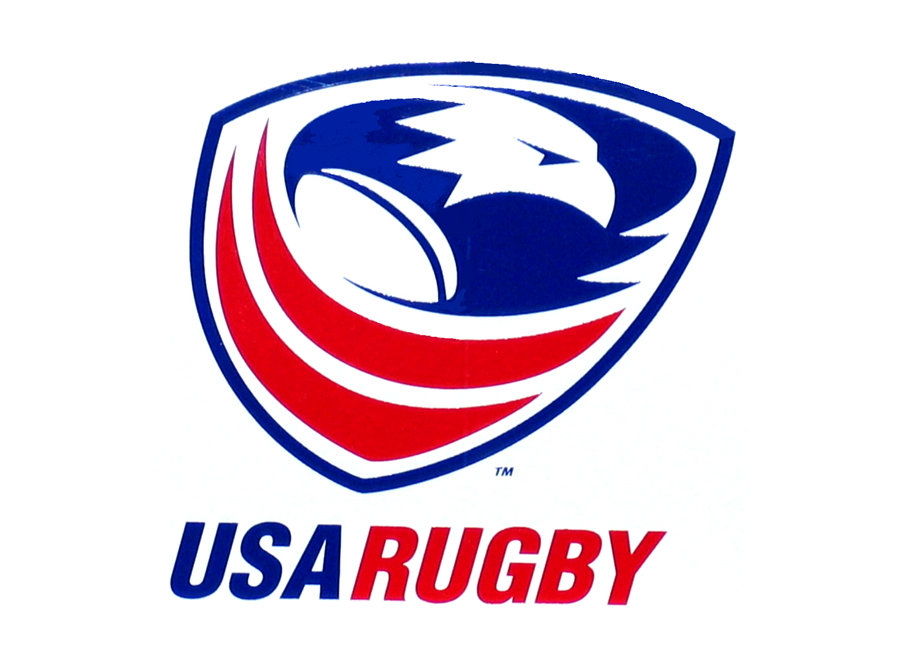This past weekend, the Texas Rugby Referee Association was honored to supply the referee team for the Brazoria Spartans Youth Rugby Tournament held in Alvin, TX. This event was entirely officiated by U-19 referees, shining a spotlight on the young talent that USA Rugby has in the referee pool.
19 total youth referees descended on the suburb of Houston, TX, including six traveling cross-country on exchange from the Potomac Referee Society of the Mid-Atlantic. Ages of the youth referees ranged from 11-19, with many referees officiating players who were older than them on the day.
The tournament boasted 42 total matches – a mix of 7’s, 10’s, and 15’s – with age groups from 3/4th minis, to Middle School and High School. One of the day’s highlights included High School Boy’s Varsity sides competing in a round robin, of which 6 referees were able to officiate. 4 of the 6 had never before refereed at that level. TRRA Member Peyton Olivas (14) was one of those 4 [pictured below, left].
5 of the youth referees were brand new to officiating, having taken the L1 Referee Course only a week earlier in Houston. Texas Rugby Referee Association Vice-Chair Tim O’Gara was the educator for that course and the referee manager on the day. Colleagues reported, “Tim worked tirelessly to make this event happen. His passion for the number of youth referees to grow and for the kids to have the experience and support so many of us missed out on was palpable. This event was phenomenally run and officiated, and Tim was the cornerstone to making this happen”.
The youth referees were supported outstandingly by a skilled team of referee coaches, coming from all over the country and internationally to volunteer to coach the next generation. Fernando Garcia (Mexico) [pictured below, far right] and Phil Klevorick (Back10Pros) were an invaluable addition to the coaching crew.
The TRRA youth referees in attendance are now all eligible for selection to an exchange to Potomac Referee Society in late July, in an effort to grow the ties between referees both within a region, and cross-country.
This event would not have been possible without the support of the Katy Barbarians, West Houston Lions Rugby Club, Rugby Texas, Potomac Referee Society, Houston Youth Rugby Association, Lost Afternoon Rugby Luncheon, Woodlands Youth Rugby, Back10Pros, The US Rugby Foundation, and the Texas Rugby Referee Association.
Special thanks to the organizational efforts by Ken Fraine (Potomac) and Tim O’Gara (TRRA) who put the pieces together for an amazing weekend.
Photos by Macune CCS


